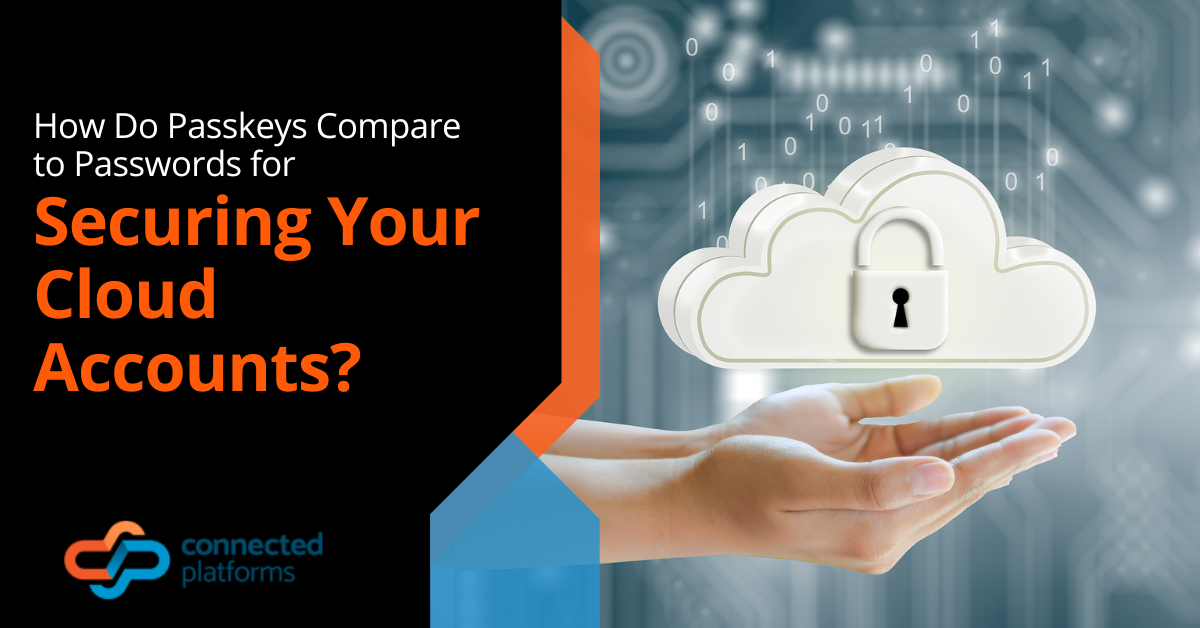Securing your cloud account is an important aspect every individual and organisation must consider. Using a password to secure your cloud account can be very tricky.
A password can be easy to create and use. Still, it also opens up a new opportunity for hackers who may obtain access to critical information stored on the cloud using a series of stolen credentials.
As data breaches and identity theft continue to increase daily, password security has always been irrelevant. According to Arnet, Data breaches cost an average of AU $3.5 million during the measured period in the public sector.
Passkeys are a solution that provides more security than using a regular password. In this article, we will go in-depth about how passkeys work and why passkeys are more secure than passwords. But first, let’s highlight why cloud security is essential.
Why cloud security is so important
Protecting data and business information, such as client orders, transaction detail, and financial information, is critical to cloud security. Avoiding data breaches and theft is crucial for retaining your reputation and customers’ confidence and safeguarding the assets contributing to your competitive edge. The capacity of cloud security to protect your data and assets makes it critical for any business.
Difference Between Password and Passkey
What is password
A password is an authentication protocol that allows internet users to access personal information, applications, or sensitive data. Passwords are one the most critical data security methods currently used and are typically used together with a username.
Passwords can be any length and contain special characters, letters, and digits. However, they should be unique and only known to the user.
Businesses should adopt password policies that include suggestions for strong passwords and a deadline for changing passwords regularly to secure data.
What is passkey?
Passkeys are a newer type of login credential that eliminates the need for passwords. A passkey allows you to create online accounts and sign in without entering a password.
With this new strategy, you avoid a weak password that can be easily discovered or guessed. Biometric identification (such as a fingerprint or face recognition) or a PIN or swipe pattern is used to authorise access in passkey.
Passkeys provide more robust security for businesses.
How Passkeys Work
Passkeys use encryption to confirm your identity. Because each passkey is created by an automated method, it is a strong and unique encryption key. When you use a passkey to establish an account, two keys are generated: public and private keys. Technically, the public and private keys are linked and required to access the account.
A public key is a key that is widely distributed. It is not a secret key, but one sent to the web server for storage. A private key, on the other hand, is kept secret and secure. It is saved on your device rather than the server. It is used to decode data encrypted using your public key.
When the server provides random data or PINs to the authenticator, the user’s identity is authenticated on the device. The private key authenticates the user to the account and then sends the answer back to sign in the data using the private key.
Why Passkeys Are More Secure Compared to Passwords
Here are why passkeys are safer to use than a password:
Prevents Data Breaches
A data breach happens when confidential, sensitive, or protected information is stolen or exposed to an unauthorised user. Data breaches can occur due to social-engineering tactics—for example, phishing.
Phishing is a social engineering method used by hackers to get sensitive information. These attacks are frequently carried out by impersonating a website or email to gain login credentials. But hackers can quickly compromise your account if your password is not strong and unique.
Passkeys, conversely, make it more difficult for hackers to perform a data breach. For example, biometric IDs and fingerprints are more complicated to forge than passwords.
Passwords are no longer a threat since passkeys provide comprehensive protection against phishing attacks.
Prevents Brute Force Attack
A brute-force attack includes attempting every possible key combination until the correct password is discovered.
Hackers can quickly discover a password. However, an attacker cannot effectively guess, or brute force your access to a site since each passkey has a unique key.
Can’t Be Shared
To secure your account, a strong and unique password is advisable. But this password can be shared or reused with multiple users.
However, passkeys validate a user’s identity using public and private keys. Gaining access to the key, on the other hand, is far more complicated. This is because hackers must have access to both the public key on the application and the private key on the user’s device to gain access to their account.
Furthermore, passkeys cannot be shared easily with others because each one is unique to each user.
Enhances the User Experience
Trying to remember several log in passwords is a common challenge that causes people to create weak passwords. Passkeys avoid the need to keep or manage numerous passwords, allowing you to log in without typing your password or username.
Accounts can be validated using a security key, fingerprint, PIN, Face ID, or biometrics. This is considerably easier than inputting complicated code or memorising a password. This makes for a more comfortable and uniform experience across many of the user’s devices.
Secure Your Cloud Account with Connected Platforms Today
While a strong password will keep hackers out of your account, introducing passkeys gives internet users an excellent choice for keeping their accounts safe.
Ensure your data is secure and safe against data breaches and identity theft. We can assist you in protecting your account from a costly data breach.
Contact us today to get a free IT security audit.




